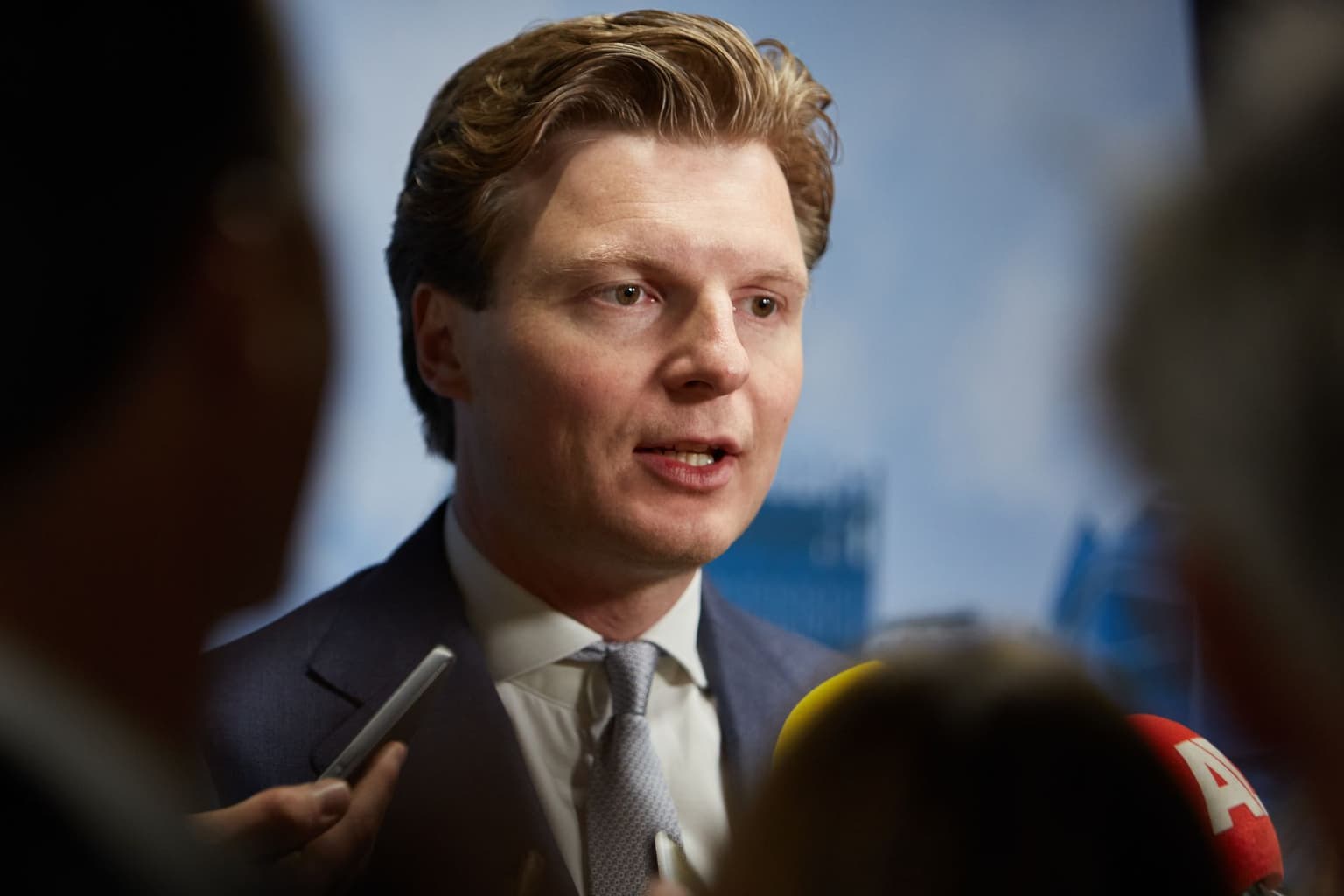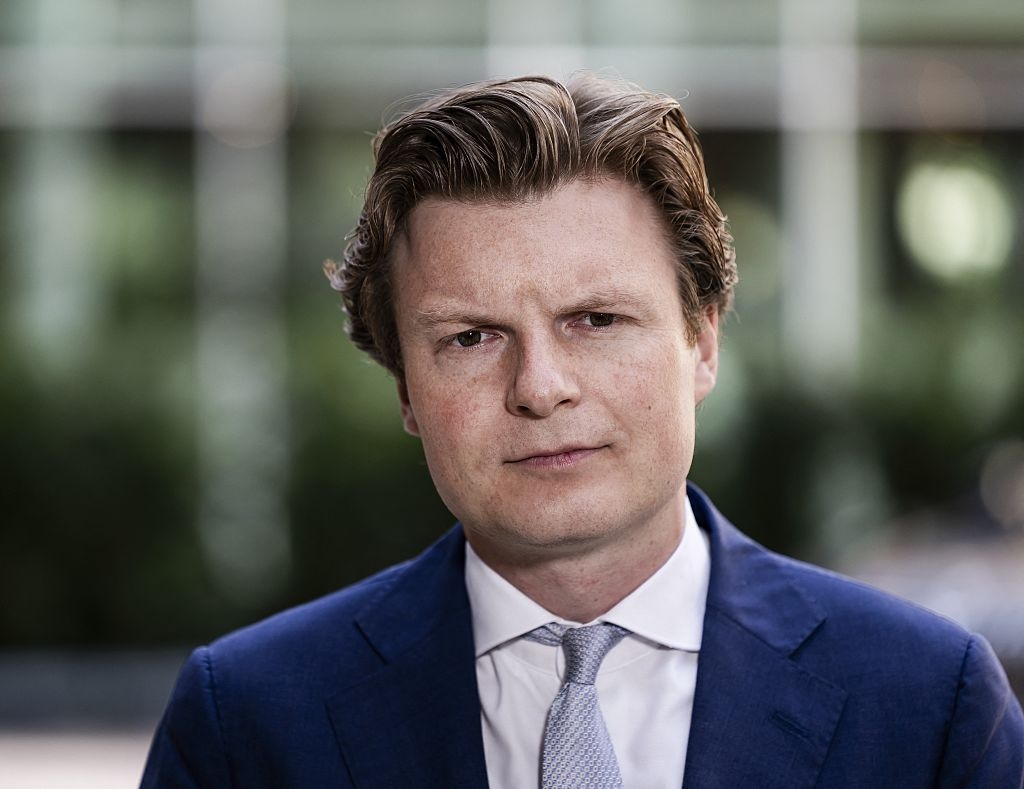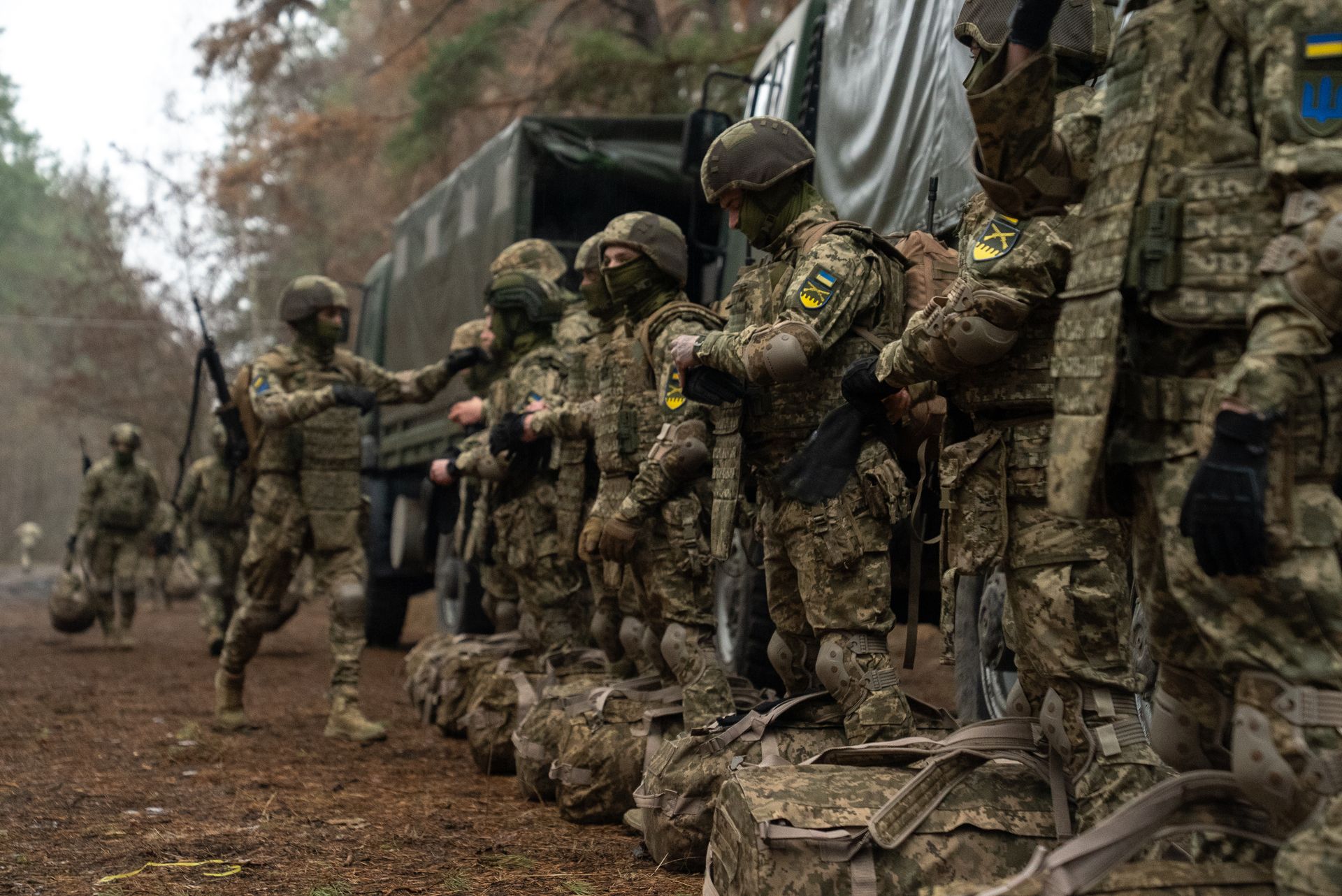Dutch Defense Minister Brekelmans on European 'drone wall,' using Russian frozen assets 'in a creative way,' and what to do with China

Dutch Defense Minister Ruben Brekelmans in The Hague, Netherlands, on June 24, 2025. (Pierre Crom / Getty Images)
Dutch Defense Minister Ruben Brekelmans feels that Europe must do more to counter Russia's threat — and he has a few ideas how to do it.
"(Vladimir Putin) knows he is creating unrest, that's positive for him, there is no disadvantage nor drawback for him," Brekelmans said, responding to a question on the recent Russian drone incursions into NATO territory.
"So I suggested, for example, just as an idea, let's make sure that for every drone incursion, every Russian drone that's entering NATO airspace, let's give 100 million euros in support to Ukraine (so) you can strike back," he told the Kyiv Independent during an interview in the Ukrainian capital.
A more concrete idea, proposed by the Dutch defense minister, was "to find creative ways to use the (Russian) frozen assets for military support."
The most recent proposal, distributed to EU ambassadors in September and seen by the Kyiv Independent, outlined a plan to lend 140 billion euros to Ukraine using the Russian frozen assets as collateral.
Brekelmans said the Netherlands is tentatively on board.
"We supported the principle, but we need to make sure that it is an international effort and that it's legally sound."
According to the document seen by the Kyiv Independent, the widely discussed plan envisions redirecting 185 billion euros to the EU via "a tailored debt contract with Euroclear."
The contract would take the form of an IOU to Euroclear, collectively guaranteed by European countries. Of this sum, the EU would lend up to 140 billion euros to Ukraine with zero percent interest, which would only be repaid should it receive reparations from Russia.
"I think the only way to make sure that we can give Ukraine this medium-term perspective that you can count on is a stable flow of military support by using the frozen assets," Brekelmans said.
"We need to increase the pressure on Russia."
But when it comes to Europe's own defense, and how to tackle Russia's ongoing incursions into NATO territory militarily, the minister said the plan is still in the works.
"I agree that we need to have something like a drone wall. We need to protect the eastern flank against drones. But we need to do it in an efficient way," Brekelmans said, hinting that his country doesn't support the European Commission's idea of a so-called "drone wall" project, a not clearly defined idea of linking a network of radars and acoustic sensors across EU countries.
"I think it should be up to NATO to define the concept that is needed because NATO is our military alliance."

Brekelmans mentioned the Ukrainian "drone line" project launched in February 2025, financed by the Netherlands in full, as something that is more swift and effective in countering the Russian threats. The project envisioned the rapid scaling up of Ukraine's drone units, and their improved coordination, to stop Russia's ongoing battlefield advances.
"There are a hundred thousand drones produced. Two companies, in particular, are close to signing the first contract and we don't announce details because they are not there yet."
While different in task, Brekelmans had given the example of the "drone line" project as something that can be done on the spot in a fast and efficient way.
"My colleagues, they were a bit skeptical (of the "drone wall" project), because they thought, okay, now there is this big idea and these big concepts, but it might take three years and a lot of money."
To counter Russia's ability to wage its war against Ukraine, and to target NATO states as well, the Kremlin must be deprived of the funds and tools, Brekelmans said.
"We need to increase the pressure on Russia," he added. "We need to have more sanctions in a coordinated way between you and us. Also, the oil and gas revenues should be part of it because those revenues are still way too big."
"And more sanctions on companies that are working on sanction circumvention," he added.
When asked whether it made more sense to impose sanctions on countries, not companies, that are helping Russia evade sanctions and provide dual-use goods for the Kremlin's war machine, Brekelmans took a step back.
"If you talk about sanctioning an entire country, then you also need to have a legal basis for that, and if you look at the EU legislation, that's much harder to do than for the United States," he said, adding that EU sanctions or tariffs on Beijing and New Delhi are not in the works.
"I also know that there is not even a majority, let alone unanimity. The EU is not using tariffs for geopolitical purposes like the United States."










